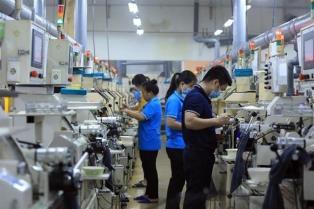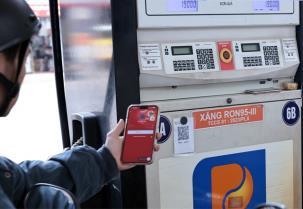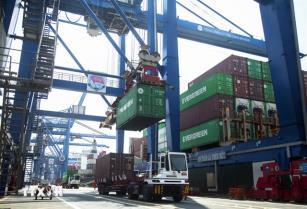Việt Nam races to shed EU ‘yellow card’ as crackdown on illegal fishing intensifies
Việt Nam has fully populated its national fisheries database, VNFishbase, with all 79,360 fishing vessels – a 100 per cent registration rate.
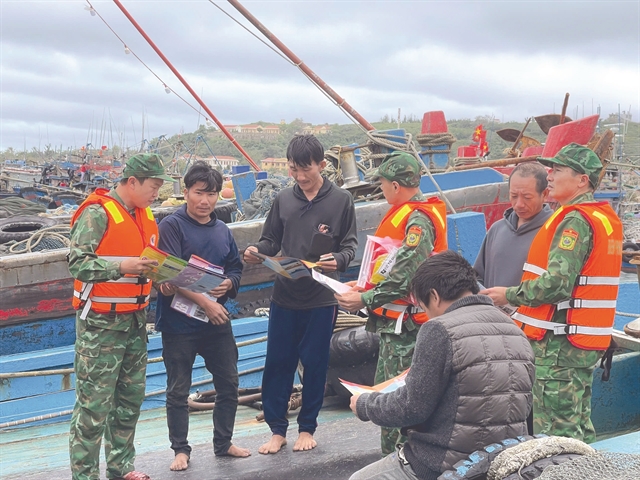
Compiled by Lê Việt Dũng
Việt Nam is mounting its most aggressive campaign yet against illegal, unreported and unregulated (IUU) fishing as the country enters a decisive phase of its eight-year effort to lift the European Commission's 'yellow card' warning that has hung over its multi-billion-dollar seafood exports for years.
With EU inspectors scheduled to conduct an on-site review this month, the Government has thrown the full weight of the political system – from central ministries and security forces to coastal communes – behind a sweeping crackdown on IUU fishing.
Officials describe the coming months as a watershed sprint that will determine whether the country can finally clear the EU’s restrictions.
Legal overhaul
Việt Nam’s legal response began almost immediately after Brussels issued the 'yellow card' in 2017.
The National Assembly passed a new Fisheries Law later that year, which came into force in 2019, codifying for the first time a broad range of IUU violations – from unlicensed fishing and trespassing into restricted sea zones to failing to install or operate vessel monitoring systems (VMS).
That law was backed by the Government's two key regulations later in 2019: Decree 26 on the enforcement of the Fisheries Law and Decree 42 on administrative violations.
A second wave of reforms arrived in 2024, when the Government issued a series of decrees to close loopholes and strengthen sanctions. Decree 37 and the more consequential Decree 38 tightened the legal framework and sharply increased penalties.
The maximum fine for a single fisheries-related administrative violation now reaches VNĐ1 billion (US$38,000) for individuals and VNĐ2 billion ($76,000) for organisations.
Tampering with vessel tracking systems was singled out for heavier punishment. Repeatedly disconnecting VMS equipment on vessels 24 metres or longer now carries fines of between VNĐ500 and VNĐ700 million ($19,000-$26,500), while fishing without a valid licence on vessels of that size can trigger penalties of up to VNĐ1 billion.
Decree 38 also expanded enforcement power: the coast guard, border guard and customs can now levy fines, and senior officials at the General Department of Customs and the Fisheries Surveillance Department can impose penalties up to VNĐ1 billion in some cases.
Last year the Supreme People’s Court issued Resolution 04, clarifying the line between administrative and criminal violations: disabling a VMS may be prosecuted as “disrupting electronic equipment,” while fishing illegally in foreign waters can be charged as “organising illegal exit”.
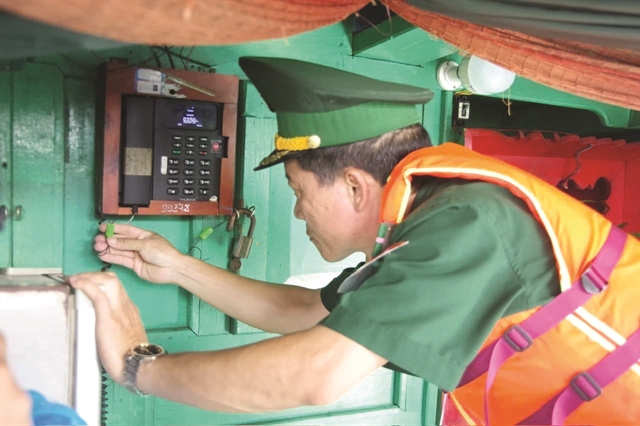
Tightened net
The legal net tightened again in November with Decree 301, which amended Decree 38 to fill enforcement gaps.
Failure to report vessel positions every six hours during a VMS malfunction can draw fines of between VNĐ100 million and VNĐ300 million ($3,800-$11,400); ignoring orders to return to port for VMS repairs within 10 days can cost up to VNĐ400 million ($15,200) unless full manual reporting is provided.
These legal changes have been accompanied by a more assertive political and institutional push.
In 2019, Việt Nam established a National Steering Committee on combating IUU fishing, chaired by top Government leaders and connected to all coastal provinces and cities via weekly nationwide meetings.
These video conferences have become a ritual of accountability, where officials review vessel data, examine problem cases and track progress in real time.
At the committee’s 20th session on November 4, Prime Minister Phạm Minh Chính pressed home the stakes: removing the yellow card is not just economic – it is the matter of "honour for the nation and prestige for the Party and the State".

While new laws form the legal backbone of compliance, Việt Nam has also launched a massive public-awareness drive to change daily practices among fishermen.
Across coastal provinces and cities, authorities have used loudspeakers, leaflets, social media, port-side billboards, and village meetings to explain IUU rules. Thousands of sessions have brought fishermen, vessel owners, port managers, border guards, and fisheries surveillance officers together.
In Quảng Ngãi, the border guards held 113 intensive sessions and 80 large dialogues this year, reaching more than 7,800 people. Over 2,100 fishermen there have signed written pledges not to violate IUU regulations.
Some areas have used theatre and drama to spread the message. In Nghệ An, guard forces staged a play, The Seaside Village in Uproar, dramatising the consequences of illegal fishing.

Meanwhile, in HCM City, officials held a mock trial: ‘defendants’ were sentenced symbolically to 8 or 10 years, sending a strong signal that criminal prosecution is no longer hypothetical.
The Việt Nam Coast Guard now supports over 50,000 members through electronic networks — sending alerts via smartphone apps, Zalo groups and SMS to share weather warnings, sea-boundary updates, and compliance reminders.
'Peak month'
With the inspection approaching, the Government declared October–November 2025 as a nationwide "Peak Month Against IUU Fishing", backed by two directives – Official Cable 198 and Decision 2310 – that set tightly sequenced deadlines.
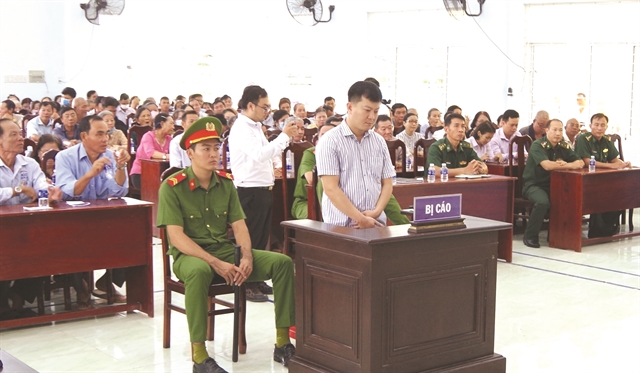
By October 30, Việt Nam was required to activate a nationwide VMS disconnect warning system and ensure that all vessels 15m or longer used electronic fishing logbooks (e-logbooks). The same deadline applied to fully screening all imported fishery products harvested abroad under the Port State Measures Agreement.
By November 15, all vessels 15m or longer had to complete port entry and exit procedures through the country’s electronic catch documentation and traceability system (eCDT).
By October 5, all unresolved cases of vessels losing VMS connection had to be addressed. The PM warned that provincial and city leaders would be directly accountable if vessels in violation reappeared.
Behind these tight deadlines are specific ministerial assignments:
– The Ministry of Agriculture and Environment has been tasked with tightening control over imported aquatic products and sending inspection teams to coastal provinces and cities.
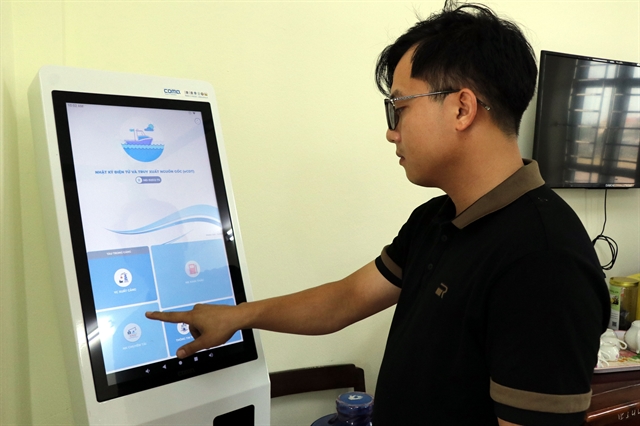
– The Ministry of Public Security was tasked with launching a fishing vessel and fisherman management app on the national digital ID platform VNeID before November 10 and accelerating criminal investigations into recent IUU cases.
– The Ministry of Foreign Affairs has been asked to accelerate negotiations with neighbouring states on monitoring mechanisms in overlapping waters and compiling data on Vietnamese fishermen detained abroad.
–The Ministry of National Defence, working with military-run Viettel, must digitise vessel management systems nationwide, tighten controls at border guard checkpoints to prevent unlicensed departures and eliminate 'three no' vessels – those without registration, inspection or licences.
– Provincial and city authorities have been instructed to complete vessel registration and licensing, monitor port activity, identify at-risk vessels and keep ineligible boats anchored under tight supervision.
Tangible progress
Officials say these efforts are producing measurable results.
Việt Nam has fully populated its national fisheries database, VNFishbase, with all 79,360 fishing vessels – a 100 per cent registration rate. Roughly 96.8 per cent have valid licences.
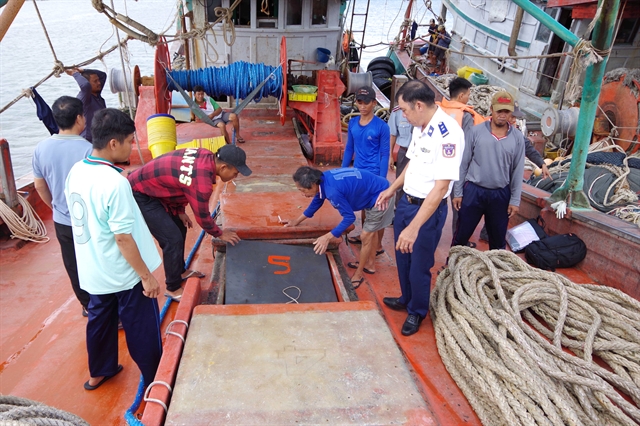
Among vessels 15m or longer – the group required to install VMS – the installation rate reached above 99.1 per cent in October, up from 98 per cent in 2023. The number of vessels losing VMS connection has fallen by more than 80 per cent year-on-year.
Between early 2024 and November, police opened 91 criminal cases tied to IUU fishing and prosecuted 136 defendants. The number of Vietnamese vessels detained abroad has plunged from 181 in 2015 to just 13 this year.
Julien Guerrier, the EU’s Ambassador to Việt Nam, has expressed appreciation towards Việt Nam's efforts.
"Việt Nam has completely overhauled its legislation for IUU, putting it on par with world-class legislation in this area. It has also invested a lot to equip all fishing boats longer than 15m with tracking devices," he said
"A report has been sent by the Ministry of Agriculture and Environment to Brussels early October, with a visit of our minister to Brussels. So we are now analysing in Brussels that report. We see considerable progress.
"We hope to continue the excellent cooperation with Việt Nam in order to reach as soon as possible the stage where Việt Nam would be considered as fully compliant, and the yellow card could be lifted," the diplomat noted.
Several provinces and cities are already putting these plans into practice:
– Quảng Ngãi authorities say all active vessels in the province are licensed and logged in VNFishbase, with all boats 15m or longer equipped with VMS.
All five fishing ports now use the eCDT system. The province has resolved every case involving VMS disconnection or boundary violations since January 2024, including two that resulted in criminal prosecution.
– An Giang leaders report 100 per cent VMS installation on vessels 15m or longer. Eleven inactive vessels are under daily supervision, with anchoring locations uploaded to Google Maps to prevent unlicensed departures. Commune-level officials send daily photos and coordinates through Zalo monitoring groups.
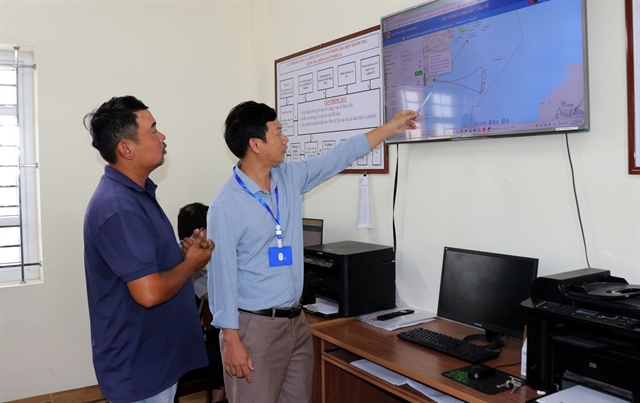
– Thanh Hoá's government says all large vessels have VMS, all active vessels have been registered and inspected and none have violated foreign waters this year. Thirty ineligible boats remain under strict watch and barred from entering the sea.
– Nghệ An has upgraded IT systems at all fishing ports and is using eCDT and VMS for 100 per cent of large vessels. The province has resolved all cases of boundary violations and VMS disconnections.
– Quảng Trị reports 4,666 registered vessels, 98.6 per cent licensing coverage and 99.2 per cent VMS installation. More than 100 ineligible vessels have been sealed and placed under constant monitoring.
With new laws, digital tracking systems, criminal prosecutions and province-by-province checklists in place, officials insist Việt Nam is closer than ever to shedding its yellow card this year. VNS

